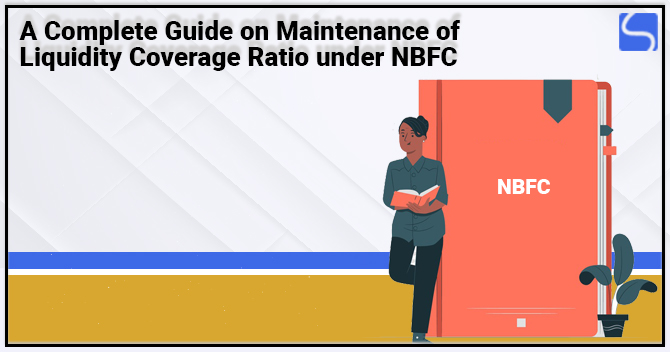RBI Notification for Appointment of Statutory Auditors of NBFCs & Banks

Karan Singh | Updated: Jul 19, 2021 | Category: NBFC, RBI Advisory
The Reserve Bank of India has recently announced the notification for the appointment of statutory auditors of NBFCs and banks. The guidelines for the selection of statutory auditors of commercial banks, UCBs (Urban Corporative Banks) and NBFCs (Comprising Housing Finance Companies) would be appropriate for the Financial Year 2021-22 and onwards. Scroll down to check more information regarding the RBI notification for the appointment of statutory auditors of NBFCs (Non-Banking Financial Companies) and banks.
Table of Contents
Applicability of the Notification
The guidelines of the RBI (Reserve Bank of India) relating to the appointment of statutory auditors should have to apply to the commercial or traditional banks (excluding RRBs), UCBs and NBFCs (including HFCs) for the financial year 2021-22 and onwards. But, non-deposit taking Non-Banking Financial Companies with a size of the asset below Rs. 100 crores can continue with their present procedure.
RBI’s Prior Consent
UCBs (Urban Corporative Banks) and commercial banks (excluding RRBs) will have to take prior consent of the RBI (Reserve Bank of India) for the appointment of statutory auditors or statutory central auditors; however, they should notify the Reserve Bank regarding the appointment of SAs or statutory central auditors for each year via a certificate in Form A in one month of such appointment.
What are the Criteria for the Appointment of Statutory Auditors or Statutory Central Auditors?
You can check the eligibility criteria for Appointment of Statutory Auditors or Statutory Central Auditors below:
| Company’s Asset Size on March 31 of Last Year | Minimum Number of FTPs (Full Time Partners) linked with the Company for at least three years | Out of total Full Time Partners, Min. No. Of CA partners linked with the Company for at least three years | Minimum number of Paid CAs or FTPs with ISA or CISA Qualification | Minimum Number of Years of Company’s Audit Experience | Minimum Number of Professional Staff |
| Above Rs. 15000 crore | 5 | 4 | 2 | 15 | 18 |
| Above Rs. 1000 crore and up to Rs. 15000 crore | 3 | 2 | 1 | 8 | 12 |
| Up to Rs. 1000 crore | 2 | 1 | 1 | 6 | 8 |
Additional Consideration
- The companies should make sure that the appointment of Statutory Auditors (SA) or Statutory Central Auditors (SCAs) is in line with the ICAIs code of ethics or any other benchmarks adopted and doesn’t give increase to any conflict of interest;
- For the audit of Urban Corporative Banks, the Statutory Auditors of the firm should have a fair knowledge of the working of the co-operative sector and should have knowledge of the language of the state where the Urban Corporative Banks or its branch is located;
- Such an audit firm shouldn’t be under debarment by any governmental agency, ICAI, NFRA[1], RBI or other financial regulators;
- In the case where any partner of CA firm is a director in any PSB, such firm will not be assigned as SAs or SCAs of any PSB. In case any partner of a CA firm is a director in any company, then such firm will not be assigned as SAs or SCAs of any of the group companies of that Company;
- The auditors for companies with an asset size of Rs. 1000 crores should have the capability & experience in deploying computer-supported audit tolls and techniques and generalised audit software.
Auditors’ Independence
The RBI (Reserve Bank of India) said that the board’s audit committee should examine and assess the auditors’ independence and conflict of interest positions in terms of significant regulatory provisions, standards, and best practices for commercial banks and Non-Banking Financial Companies.
In case of any concern with the entities’ management, like non-availability of information or non-co-operation by the management, the Statutory Central Auditors or Statutory Auditors can approach the entity’s board/LMC/ACB under intimation to RO/SSM concerned of the Reserve Bank of India.
Procedure for Appointment of Statutory Central Auditors or Statutory Auditors
- The companies would select at least two audit firms for every vacancy of Statutory Auditors or Statutory Central Auditors so that even if the firm at 1st preference is found declines or ineligible appointment, the firm at second preference could be assigned, and the process of appointment does not get delayed. But, in case of reappointment by Urban Corporative Banks or commercial banks until completion of tenure of continuous terms of three years and send the name of multiple audit firms to the Reserve Bank of India.
- Banking entities should continue to follow existing procedures followed by them for choosing SAs or SCAs. In order of preference, they will place selected audit firms’ names before their ACB or LMC for selection as SAs or SCAs. On selection of SCAs or SAs by bank in discussion with their LMC or ACB and after examining their compliance with the eligibility necessities offered by the Reserve Bank of India, the bank will seek the prior consent of RBI for SAs or SCAs appointment.
- The Urban Corporative Banks will place the name of the selected audit firms before their board for selection as Statutory Auditors or Statutory Central Auditors. On selection of SCAs or SAs by Urban Corporative Banks in discussion with their board and after examining their compliance with the eligibility necessities offered by the Reserve Bank of India, the UCBs will take the prior consent of RBI for SAs or SCAs appointment.
- The companies will get a certificate with significant information from the audit firms that are concerned to be assigned as SAs or SCAs by the Company to the effect that the audit firm complies with the norms of RBI. The certificate should be signed by the audit firm’s primary partners that are concerned to be assigned as SCAs or SAs by the Company.
- The banks (excluding RRBs) or UCBs (Urban Corporative Banks) should examine the audit firms’ compliance to the eligibility norms of the Reserve Bank of India and, once being content with the eligibility, recommend the names with a certificate mentioning that the audit firm proposed to be assigned as SA or SCA complies with all eligibility necessities.
- During approaching the RBI for prior consent, commercial banks (excluding RRBs) or UCBs (Urban Corporative Banks) should specify their total asset size; forward a copy of ACB or Board resolution suggesting names of audit firms for the appointment of SCAs or SAs in the order of preference.
Conclusion
The guidelines of the RBI concerning the appointment of Statutory Auditors has also specified that to safeguard the independence of audit firms or auditors, companies must appoint SAs or SCAs for the continuous-time of three years, subject to the firms satisfying the legibility necessities each year.
Read our article:RBI Provides the Risk Based Internal Audit Rules to HFCs















